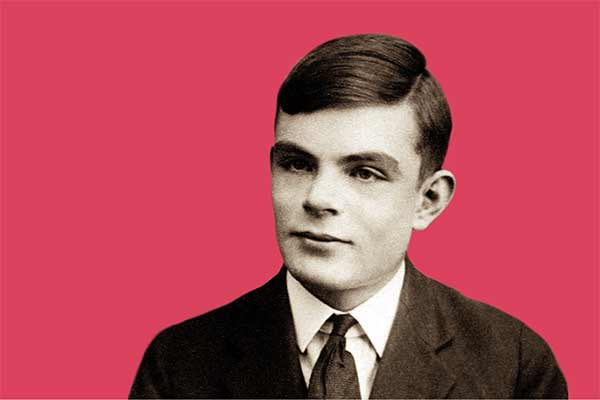For many gay activists that followed, the life and death of this ‘national hero’ gave urgency to their cause.
But for playwright Hugh Whitemore, Turing’s journey offered something a little more personal. His 1986 play ‘Breaking The Code’ will be performed at Newtown’s New Theatre, directed by Anthony Skuse in conjunction with the Sydney Gay And Lesbian Mardi Gras.
Anthony Skuse was Associate Lecturer in Performance Practice at the National Institute of Dramatic Art between 2009 and 2012. He’s directed and taught at the Western Australian Academy of Performing Arts, Australian Theatre for Young People, Australian Institute of Music, and the Academy of Film, Theatre and Television. He has three Sydney Theatre Awards including Best Independent Production and Best Direction for Katy Warner’s ‘Dropped’, and is currently Head of Performance at the Actors Centre Australia.
“My initial response to the play was lukewarm,” says Skuse. “It was written in ‘86, and was very much a play of its time. But it became more interesting once I started to think about when and why it was written.
“It was two years before Thatcher introduced clause 28, which outlawed teaching of homosexuality in schools, and the AIDS crisis was already in full swing. The gay community was under incredible pressure, and there was such anger at the government’s inaction on HIV/AIDS.
“So the play was written at a time when the gay community was looking for validation. We needed a hero, and Alan Turing was a homosexual man who made such extraordinary contributions to the war and computing – an extraordinary mind who was largely forgotten.”
While the title references Turing’s breaking of the Enigma code, Skuse says the play’s real concern is how Turing’s openness and refusal to compromise about his homosexuality challenged the social and moral codes of the day.

Image © 'Breaking The Code' Vision Designer Patrick Phillips
“There is no ‘bad guy’ in the play. The ‘bad guy’ is the social structure that marginalised people and allowed inequality to happen. It’s capitalism. It’s the class system. It’s any system that creates an environment where homosexual men aren’t able to freely express their love for one another.
"In his novel ‘Love In A Dark Time’, Colm Tóibín talks about the necessity to search out the dots of gay lives in our history and literary canon. So what I’ve tried to do with this play is search out those dots of hidden gay life. ‘Breaking The Code’ watches Turing deal with the codes of class and sexuality as he navigates different worlds. So I looked for all the codes in the text that I didn’t know to look for.
“The play was first performed the same year the Pet Shop Boys released ‘Love Comes Quickly’. You can imagine the song’s refrain of ‘how am I going to get through’ running through Turing’s head as his worlds began to unfurl. Both the play and the song were responding to similar social forces: the impact of HIV/AIDS, and Margaret Thatcher’s conservative government.
“The Pet Shop Boys, along with artists like Derek Jarman, were writing a new narrative for gay men and the queer communities at large. Like Alan Turing, they were navigating a system that denied them space and challenged their existence. So for me, Hugh Whitemore’s play reclaims Alan Turing’s place in history and offers him up as a role model – if not a national hero – in a period of crisis.”
'Breaking The Code' plays New Theatre (Sydney) from 11 February-5 March.






